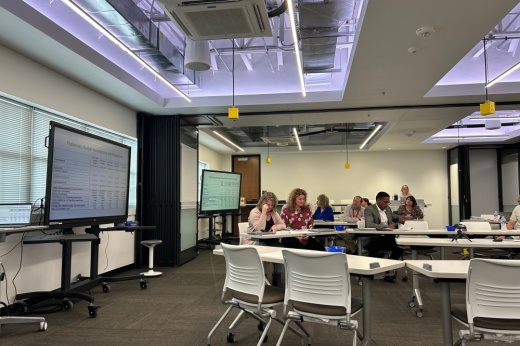The big picture
During a March 4 budget update, GISD Superintendent Devin Padavil and Chief Financial Officer Jennifer Hanna shared a three-year budget plan to allow for a sustainable fund balance by reducing the district's budgeted deficits over time.
This comes as Padavil says the district faces several budget hurdles, including unfunded mandates from the state, increases in general cost of operations, and the discontinuation of Elementary and Secondary School Emergency Relief funds, which mean the district will have to absorb additional costs in future budget years.
Part of the problem, he said, is that the state's basic allotment of funding per student has not increased since 2019, despite the rise in inflation.
"As we mentioned at the last board meeting, we are funded at a rate of $6,160 per student," he said. "If you scale to inflation, we should be receiving $7,060 per student. Just that difference would be a difference of about $13 million in revenue to the school district."
One of the ways the district will reduce its budget, Padavil said, is to reduce staffing via attrition, as well as make other hard decisions.
The breakdown
School districts must maintain a fund balance to support 90 days of expenditures as required by the Texas Education Agency, but there is not a set amount to represent this threshold.
Over the past four years, GISD has ended the year with a fund balance supporting 17% to 27.53% of operating expenditures, and is projected to finish the 2023-24 fiscal year with a fund balance supporting 23.56% of operating expenditures.
Hanna said the district has identified some efficiencies that will, over time, reduce the district's budget deficit. Per the plan shared March 4, the district would have a surplus of $625,073 for the 2026-27 fiscal year.
The context
In February, Hanna shared a budget outlook for the upcoming 2024-25 fiscal year. In it, she named some of the hurdles her department anticipates will require hard decisions to be made in order to reduce reliance on the district's fund balance. Further budget discussions held in March forecast additional difficulty in the following areas:
- Existing budget deficit
- Losing students to homeschooling, charter and private schools
- Compensation increases
- Reduce central office and professional support positions by attrition
- Larger class sizes for middle and high school
- Eliminate travel stipends for executives and above
- Reduce food purchases, travel and overtime
- Adjust transportation routes
The board will hold additional budget workshops in April and May before voting on the proposed budget in June, Hanna said.





